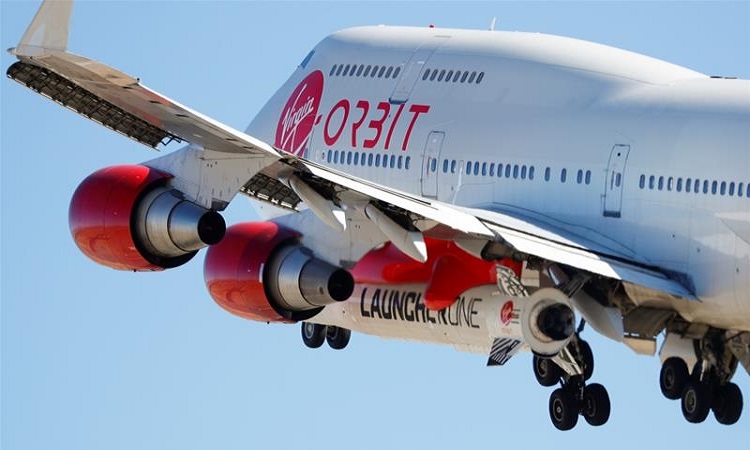The Virgin Orbit LauncherOne is finally ready. This weekend, the Boeing 747-400 “Cosmic Girl” will take it to an altitude of 10,000 meters so that it can take off to place a first satellite in low orbit.
Since the Apollo 11 Saturn V or Youri Gagarin’s Vostok 3K1, launchers still operate on the same model and still have the same drawbacks. From the ground, an astronomical amount of fuel is loaded to power rocket engines which must develop colossal power to extract themselves from Earth’s gravity. To put a reduced mass payload in low orbit, the method may not be the most effective. This is in any case the bet of Virgin Orbit which is about to launch its first satellite in low orbit with its light launcher, the LauncherOne.
Virgin Orbit is finally ready to launch its first launch into orbit with the LauncherOne. Compared to most launchers, it looks like a featherweight measuring only 16 meters for a total weight of 25 tonnes which nevertheless allow it to carry a payload of up to 500 kg. But it is above all its mode of operation that distinguishes it from conventional rockets. The LauncherOne is indeed an airborne launcher. This weekend, a Boeing 747-400 called Cosmic Girl will take off from the Mojave Desert in California to hoist it up to around 10,000 meters above sea level. It will then be dropped before igniting the engine of its first stage.
https://twitter.com/Virgin_Orbit/status/1263204623629692929
Virgin Orbit puts everything on the cubesats market
If successful, Virgin Orbit’s order book should soon fill up. The company plans to take advantage of the booming market for cubesats, these small satellites that barely exceed the size of a microwave oven. By choosing to drop the LauncherOne from an airplane, the company can do it from almost anywhere, and at a moderate cost. A flight from LauncherOne is estimated at just twelve million dollars against 62 million for a Falcon 9. With a maximum capacity of 22 tonnes, SpaceX remains much cheaper per kilo of payload, but unless a large number of satellites are on board simultaneously, the Virgon Orbit solution remains the most advantageous.




